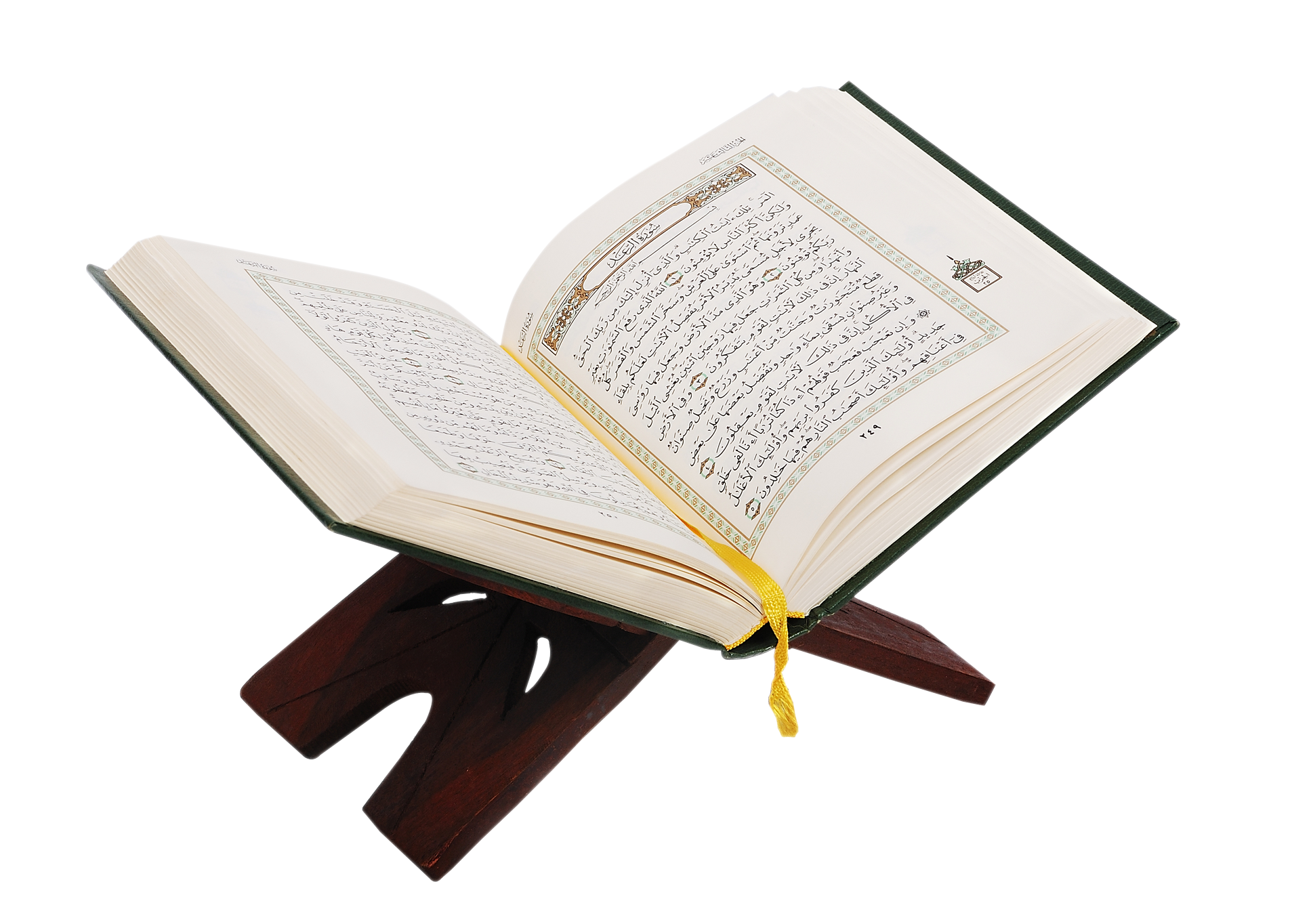
This image has format transparent PNG with resolution 1904x1364.
You can download this image in best resolution from this page and use it for design and web design.
Quran PNG with transparent background you can download for free, just click on download button.
Quran - literally meaning "the recitation"; also romanized Qur'an or Koran[c]) is the central religious text of Islam, which Muslims believe to be a revelation from God (Allah). It is widely regarded as the finest work in classical Arabic literature. The Quran is divided into chapters (surah in Arabic), which are then divided into verses (ayah).
Muslims believe that the Quran was verbally revealed by God to Muhammad through the angel Gabriel (Jibril), gradually over a period of approximately 23 years, beginning on 22 December 609 CE, when Muhammad was 40, and concluding in 632, the year of his death. Muslims regard the Quran as the most important miracle of Muhammad, a proof of his prophethood, and the culmination of a series of divine messages that started with the messages revealed to Adam and ended with Muhammad. The word "Quran" occurs some 70 times in the text of the Quran, although different names and words are also said to be references to the Quran.
According to the traditional narrative, several companions of Muhammad served as scribes and were responsible for writing down the revelations. Shortly after Muhammad's death, the Quran was compiled by his companions who wrote down and memorized parts of it. These codices had differences that motivated the Caliph Uthman to establish a standard version now known as Uthman's codex, which is generally considered the archetype of the Quran known today. There are, however, variant readings, with mostly minor differences in meaning.
The Quran assumes familiarity with major narratives recounted in the Biblical scriptures. It summarizes some, dwells at length on others and, in some cases, presents alternative accounts and interpretations of events. The Quran describes itself as a book of guidance for mankind 2:185. It sometimes offers detailed accounts of specific historical events, and it often emphasizes the moral significance of an event over its narrative sequence. Hadith are additional oral and written traditions supplementing the Quran; from careful authentication they are believed to describe words and actions of Muhammad, and in some traditions also those closest to him. In most denominations of Islam, the Quran is used together with hadith to interpret sharia (Islamic) law; in a small number of denominations, only the Quran is used as a source. During prayers, the Quran is recited only in Arabic.
Someone who has memorized the entire Quran is called a hafiz. Quranic verse (ayah) is sometimes recited with a special kind of elocution reserved for this purpose, called tajwid. During the month of Ramadan, Muslims typically complete the recitation of the whole Quran during tarawih prayers. In order to extrapolate the meaning of a particular Quranic verse, most Muslims rely on exegesis, or tafsir.
In this clipart you can download free PNG images: Quran PNG images free download